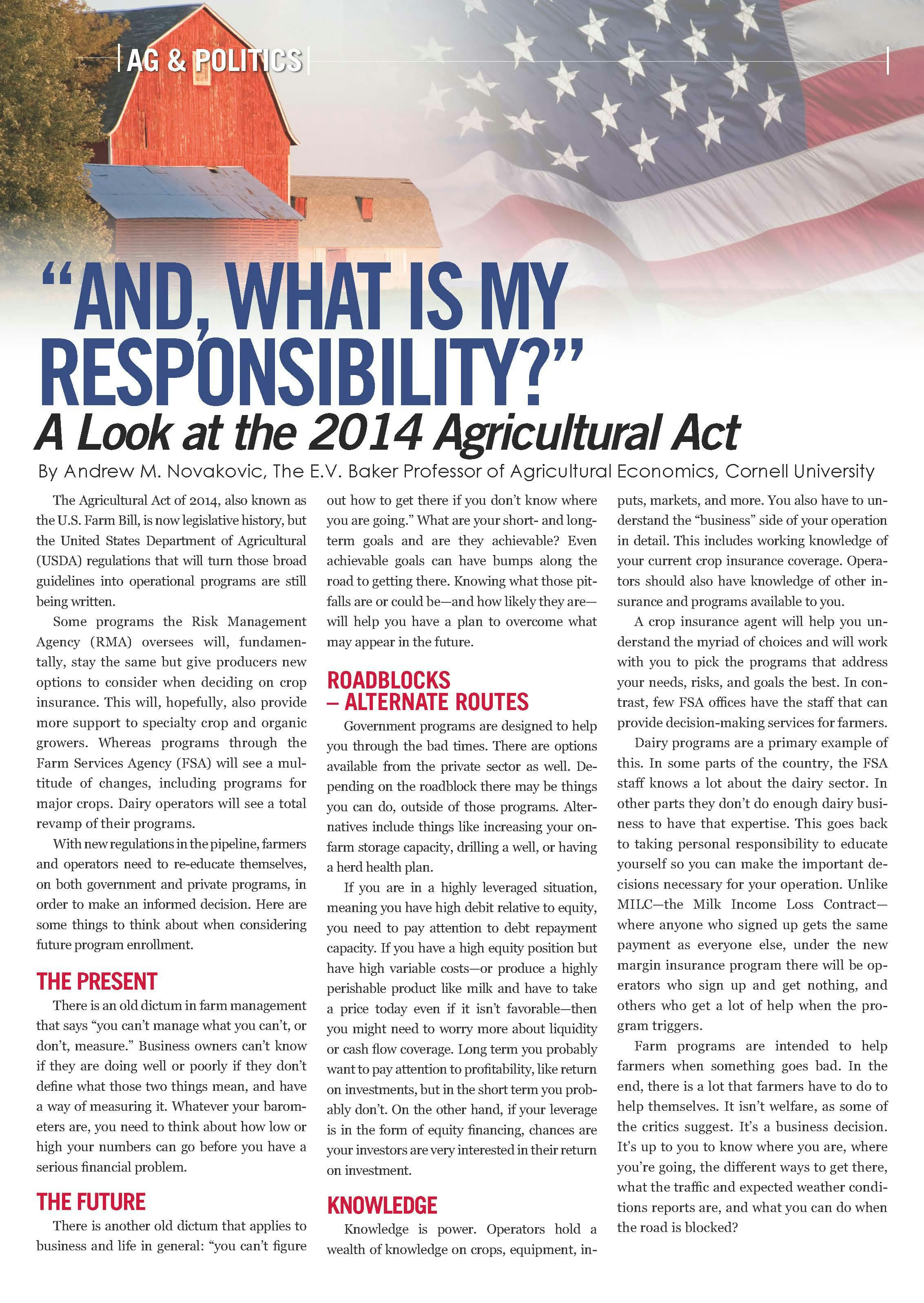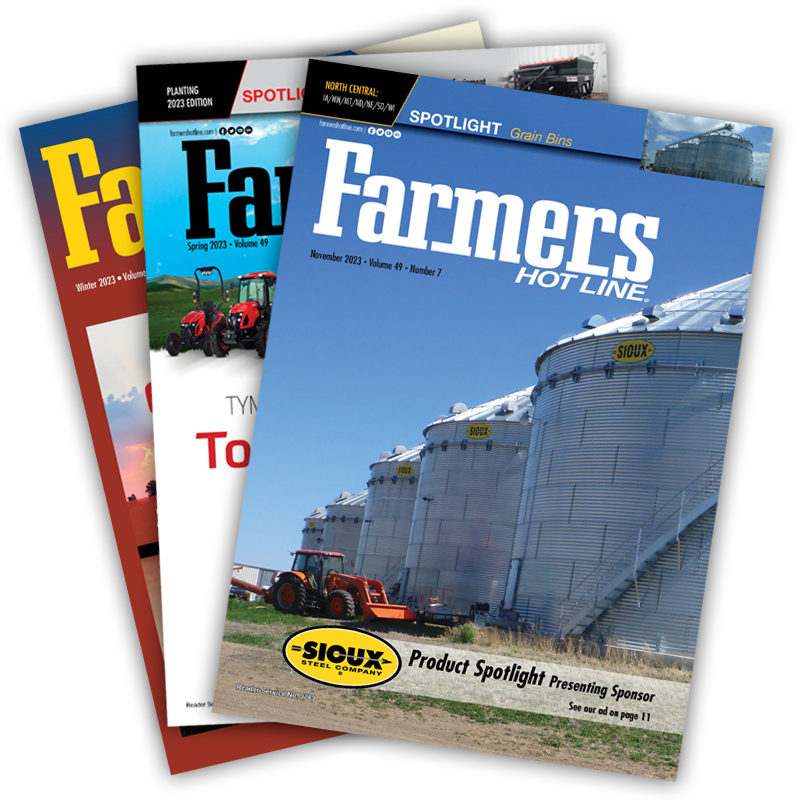“And, What Is My Responsibility?” - A Look at the 2014 Agricultural Act

The Agricultural Act of 2014, also known as the U.S. Farm Bill, is now legislative history, but the United States Department of Agricultural (USDA) regulations that will turn those broad guidelines into operational programs are still being written.
Some programs the Risk Management Agency (RMA) oversees will, fundamentally, stay the same but give producers new options to consider when deciding on crop insurance. This will, hopefully, also provide more support to specialty crop and organic growers. Whereas programs through the Farm Services Agency (FSA) will see a multitude of changes, including programs for major crops. Dairy operators will see a total revamp of their programs.
With new regulations in the pipeline, farmers and operators need to re-educate themselves, on both government and private programs, in order to make an informed decision. Here are some things to think about when considering future program enrollment.
The Present
There is an old dictum in farm management that says “you can't manage what you can't, or don't, measure.” Business owners can't know if they are doing well or poorly if they don't define what those two things mean, and have a way of measuring it. Whatever your barometers are, you need to think about how low or high your numbers can go before you have a serious financial problem.
The Future
There is another old dictum that applies to business and life in general: “you can't figure out how to get there if you don't know where you are going.” What are your short- and long-term goals and are they achievable? Even achievable goals can have bumps along the road to getting there. Knowing what those pitfalls are or could be—and how likely they are—will help you have a plan to overcome what may appear in the future.
Roadblocks – Alternate Routes
Government programs are designed to help you through the bad times. There are options available from the private sector as well. Depending on the roadblock there may be things you can do, outside of those programs. Alternatives include things like increasing your on-farm storage capacity, drilling a well, or having a herd health plan.
If you are in a highly leveraged situation, meaning you have high debit relative to equity, you need to pay attention to debt repayment capacity. If you have a high equity position but have high variable costs—or produce a highly perishable product like milk and have to take a price today even if it isn't favorable—then you might need to worry more about liquidity or cash flow coverage. Long term you probably want to pay attention to profitability, like return on investments, but in the short term you probably don't. On the other hand, if your leverage is in the form of equity financing, chances are your investors are very interested in their return on investment.
Knowledge
Knowledge is power. Operators hold a wealth of knowledge on crops, equipment, inputs, markets, and more. You also have to understand the “business” side of your operation in detail. This includes working knowledge of your current crop insurance coverage. Operators should also have knowledge of other insurance and programs available to you.
A crop insurance agent will help you understand the myriad of choices and will work with you to pick the programs that address your needs, risks, and goals the best. In contrast, few FSA offices have the staff that can provide decision-making services for farmers.
Dairy programs are a primary example of this. In some parts of the country, the FSA staff knows a lot about the dairy sector. In other parts they don’t do enough dairy business to have that expertise. This goes back to taking personal responsibility to educate yourself so you can make the important decisions necessary for your operation. Unlike MILC—the Milk Income Loss Contract—where anyone who signed up gets the same payment as everyone else, under the new margin insurance program there will be operators who sign up and get nothing, and others who get a lot of help when the program triggers.
Farm programs are intended to help farmers when something goes bad. In the end, there is a lot that farmers have to do to help themselves. It isn't welfare, as some of the critics suggest. It's a business decision. It's up to you to know where you are, where you're going, the different ways to get there, what the traffic and expected weather conditions reports are, and what you can do when the road is blocked?

